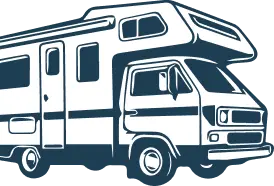
Ah, the joys of RVing! Fresh air, open roads, and…cold showers? While hitting the open road offers undeniable freedom, encountering an RV malfunction can quickly put a damper on your adventure. One common culprit is a malfunctioning hot water heater, leaving you shivering after a long day of exploration.
Don’t despair! This comprehensive guide will delve into the potential causes behind your RV’s hot water woes, equipping you with the knowledge to diagnose and potentially fix the issue.
Understanding Your RV Water Heater
Most RVs utilize propane or electric (or a combination of both) water heaters. These operate similarly to residential water heaters, heating water stored in a tank for on-demand use. While the core functionality is the same, the compact size and constant movement of an RV introduce unique challenges that can lead to breakdowns.
Common Culprits Behind a Cold RV Shower:
Fuel Source Issues:
- Empty Propane Tank: This might seem obvious, but it’s a good first check. Ensure your propane tank is open and has sufficient fuel.
- Faulty Propane Regulator: The regulator controls the flow of propane to the heater. A malfunctioning regulator can lead to insufficient gas pressure, hindering ignition or proper heating.
- Electrical Issues: For electric or combination heaters, a tripped breaker or faulty connection can disrupt power supply.
Ignition Problems:
- Faulty Igniter: The igniter sparks to ignite the propane. A worn-out or dirty igniter can prevent the heater from lighting.
- Faulty Gas Valve (Solenoid): This valve controls the flow of propane gas. A malfunctioning valve can prevent gas from reaching the burner.
Water Flow and Heating Issues:
- Sediment Build-Up: Over time, mineral deposits and debris can accumulate in the water heater tank. This sediment insulates the heating element, reducing its efficiency and hindering hot water production.
- Faulty Thermostat: The thermostat regulates water temperature. A faulty thermostat might prevent the water from reaching the desired temperature or cause the heater to overheat and shut down.
- Faulty Heating Element (Electric Models): The electric heating element heats the water. A malfunctioning element can render the heater inoperable.
Safety Features Tripping:
- High-Temperature Limit Switch: This safety feature cuts off power if the water temperature exceeds a safe limit. This can occur due to a faulty thermostat, faulty heating element, or lack of water flow.
- Pressure Relief Valve: This valve releases pressure if it builds up excessively in the tank. A faulty valve can malfunction and release water, preventing proper heating.
Troubleshooting Your RV Hot Water Heater:
Before diving into repairs, some basic checks can often identify the culprit:
- Check the Propane Level and Regulator: Ensure your propane tank is open and has sufficient fuel. If you suspect a faulty regulator, consult a qualified RV technician.
- Verify Electrical Connections: For electric or combination models, confirm that there is power to the heater and no tripped breakers.
- Inspect the Igniter: Visually inspect the igniter for any cracks or debris build-up. If necessary, a qualified technician can clean or replace it.
- Listen for Ignition Attempts: If you hear clicking sounds when attempting to light the heater, it might indicate an issue with the igniter or gas flow.
Preventive Maintenance is Key
The best way to avoid a cold shower on your RV trip is through proper preventative maintenance. Here are some key tips:
- Regularly Flush Your Water Heater: Aim to flush your water heater at least once a year, or more frequently if you use hard water.
- Inspect the Anode Rod : The anode rod attracts corrosion to protect the tank. Visually inspect it annually and replace it when it’s worn down by half or more.
- Winterize Your RV: If you plan on storing your RV during freezing temperatures, properly winterize it to prevent water lines and the water heater tank from freezing and cracking. This typically involves draining the water system and adding antifreeze. Consult your RV’s manual or a qualified technician for specific winterization instructions.
When to Call a Professional
While some basic troubleshooting can be tackled by DIY enthusiasts, there are situations where seeking professional help is crucial:
- Gas Leaks: If you suspect a gas leak, do not attempt to fix it yourself. Turn off the propane supply immediately and evacuate the RV. Contact a qualified RV technician to diagnose and repair the leak.
- Electrical Issues: For complex electrical problems, it’s best to leave it to a qualified RV technician to ensure safe and proper repairs.
- Extensive Repairs: If the troubleshooting process points towards a faulty heating element, control board, or major component failure, it’s best to seek professional help for repair or replacement.
Conclusion
By understanding the potential causes of a malfunctioning RV hot water heater and following these tips, you’ll be well-equipped to diagnose basic issues, perform preventative maintenance, and know when to seek professional help. Remember, a little preparation and knowledge can go a long way in ensuring hot showers and a more enjoyable RV adventure!

